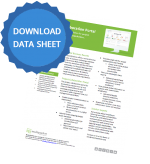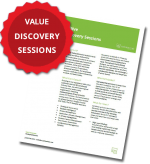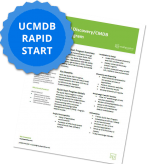7 Qualities of a Dynamic and Valuable Software Tester
By: Matt Angerer
So you want to be a software tester? If you fit the profile, it’s an engaging and fun job that can earn you money on your own schedule, from anywhere in the world.
Of course, having the proper skillset is critical for getting (and keeping) the job. Not everyone can succeed in the profession, and if testing not the right area for you, it’s better to know early. So to help you make that decision as quickly as possible, here are 7 qualities that a dynamic and valuable software tester should always possess:
1) Creativity
If everything in early versions of a software development process would go according to script, no human testers would be needed. However, back in reality, actual human beings testing the software remains so important because they’re uniquely capable of finding errors that automated programs and QA software simply can’t.
For the tester, that means creativity is a crucial skill if you want to succeed. Instead of testing only the features in the requirements of the job, this trait allows you to go beyond and explore the software as if you were a user. You may take more time to finish the task, but you will invariably unearth issues that those sticking to the script might never find.
2) Curiosity
Creativity is closely related to curiosity. Don’t be afraid to dig around, enabling you to go deeper into the software in order to unearth any bugs and errors that the developers may never even have thought to test for. Ask questions, whether out loud or internally as you go through the testing process.
3) Confidence
When you find something that’s wrong in the software, don’t question yourself. Instead, be confident enough in your knowledge and ability to question the software and suggest potential improvements. Without this confidence, you may struggle with a large volume of tests when you don’t have time to go back and forth on whether you should report an issue.
The second part of that statement, of course, is just as important. The best testers don’t just report bugs, but suggest ways in which borderline issues can be improved. If the navigation is clumsy, for example, they come up with ways in which the user experience might be improved. Doing so is only possible if you have the confidence necessary to make that kind of judgment call.
4) Perseverance
We’ll let the website of the ISTQB Exam Certification make the case for this skill as an important software testing quality:
Great testers never give up. They are patient enough to find as many bugs as they can. They explore the software, constantly try to make new improvements and take all the testing challenges and complexities positively and patiently.
When it comes to software testing skills, it’s crucial to walk the fine line between persistence and stubbornness. You want to be persistent in discovering and pursuing both obvious and potential errors. However, you can’t afford to stubbornly dig into a single error while ignoring the rest of the project. Finding the balance between tenacity and efficiency is an important trait for any dynamic and valuable software tester.
5) Accountability
As a software tester, you are responsible for detecting other people’s mistakes. But we’re all human, and you may make your own mistakes along the way. To retain your credibility and authority in reporting bugs and usability issues, you must be willing to own up to potential mistakes or misunderstandings along the way.
You may report a bug in error, or question a usability issue that is actually designed that way for a specific purpose. When that happens, don’t try to explain yourself or attempt to justify your reasoning. Instead, acknowledge that you’ve made a mistake and move on. You’ll save everyone considerable time and effort in the process.
6) Communication Skills
You don’t just need to detect errors. You also need to be able to communicate these errors to the developers in the most effective and neutral way possible. Communication of feedback should be effective and professional enough to help you improve the software and avoid alienating the development team in the process.
That makes communication skills an important part of your software testing skills set. Both verbally and written, you should be able to get to the point quickly, outlining what you find without assigning value judgments or emotion to the errors in question.
7) Technical Skills
Finally, we’d be remiss not to talk about technical skills as a crucial part of the equation. It may seem obvious, but without at least a base understanding of the way software is built, you may not be as adept in testing that software as you could be.
Your technical skills, in fact, should extend to both the tools you use to test the software, and the coding with which it was built. That doesn’t mean you need to be on the same level as the developers. You should, however, at least understand the way it was developed so that you can understand its essential functions and potential bugs. Testing software can be both fun and rewarding. You may find bugs or experience usability issues, but reporting them both helps you improve the code and maximize the potential success of the development process.
Do you possess the above skills? If so, you might want to give becoming a software tester a shot. At ResultsPositive, you can join our army of testers that help clients improve their product on a daily basis. And as a potential client, you can be sure that each of our testers have been vetted to demonstrate the above skills. To learn more about what we can offer you and your development projects, contact us.
Subscribe for the latest RP Blog Updates:










